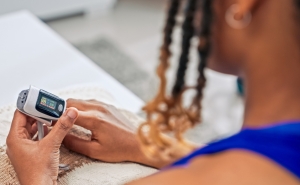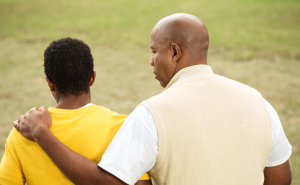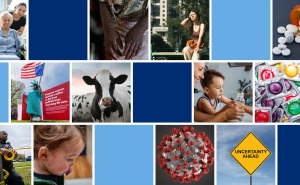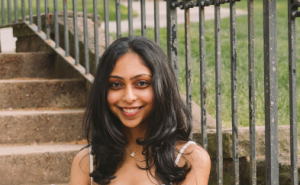Jailed and Pregnant: What the Roe Repeal Means for Incarcerated People
The Dobbs decision has further complicated and restricted reproductive health care for incarcerated pregnant people.
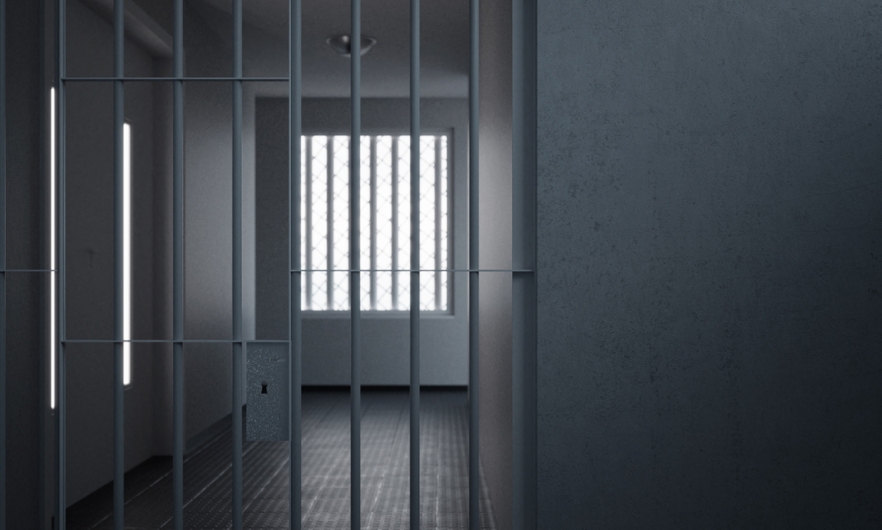
For women in the U.S. carceral system, access to reproductive health care isn’t often simple. The rules surrounding abortion in particular vary widely from state to state and even among prisons in the same state.
And that was before the U.S. Supreme Court’s ruling in Dobbs v. Jackson Women's Health Organization removed the constitutional right to an abortion. Now, the situation is even murkier for incarcerated pregnant women. Experts like OB-GYN Carolyn Sufrin, MD, PhD, MA, worry about the impending harms to this already marginalized population.
In this Q&A, adapted from the August 26 episode of Public Health On Call, Josh Sharfstein speaks with Sufrin, an associate professor in the Johns Hopkins School of Medicine and in Health, Behavior and Society at the Bloomberg School, about her work with incarcerated people and how their reproductive health care may suffer in the wake of the Dobbs decision.
Public Health On Call
This article was adapted from the August 26 episode of Public Health On Call Podcast.
You’re an OB-GYN who has focused on reproductive health in jails and prisons. Please tell us a little bit about what you’ve worked on in your career.
I’ve been working on reproductive health issues facing incarcerated people for well over a decade. I’ve worked as an OB-GYN at a jail for about six years, and I’ve been conducting research and policy and advocacy work to try to improve access to reproductive health care for incarcerated folks.
Let’s go back to before Roe v. Wade was overturned. What do we need to know to understand the state of reproductive health care in jails and prisons?
It depends. It’s highly variable. And this is true for any health care, but especially sexual and reproductive health care for incarcerated women, because women are so consistently marginalized in the carceral system. The reason it depends is that there is no mandatory set of standards or health care services that prisons and jails must provide, and no mandatory system of oversight or accountability.
Some prisons and jails provide a reasonable measure of access to quality reproductive health care, but many more provide substandard or no reproductive health care.
And that’s true even though in theory there’s a constitutional right to health care for people who are incarcerated?
That’s right. The 1976 Supreme Court case Estelle v. Gamble established that prisons and jails must provide access to health care and address the “serious medical needs” of incarcerated people, and not to do so is considered cruel and unusual punishment.
Let’s talk specifically about abortion care in the carceral system. What was that like before this recent Supreme Court decision?
It depended—not only on what state you were in, but what facility you were in. One jail might have a policy that allowed abortion, and another jail down the road might not.
Our research has found that even in states where abortion was legal and fully accessible up to [fetal] viability, some prisons and jails had either official or unofficial policies that did not allow incarcerated women to access abortion.
What were some of the obstacles people faced?
Some of the official obstacles were written or unwritten policies that did not allow abortion, or policies that may have allowed it but only in the first trimester, even in some of the most abortion-supportive states. Or, in some cases, maybe they in theory allowed abortion but required the pregnant person to pay for their own abortion—and not only for the procedure, but for transportation costs like gas and mileage for the prison van, or for overtime for the guards.
These individuals have limited funds to begin with. Even if they had insurance or Medicaid that would otherwise cover an abortion, those funds are not accessible to people while they’re incarcerated.
You have cared for people who are pregnant in jails and prisons. You have interviewed them for your research. How does this situation affect them?
Pre-Dobbs, our qualitative research found that many incarcerated pregnant people internalized the sense that they had no rights at all. Even if they were at a facility that in theory allowed abortion, nobody talked to them about it, nobody offered them options counseling, nobody even told them they had the right to abortion.
And so they assumed that they had no right to abortion. They assumed that they had to carry this pregnancy and just didn’t even consider it as an option.
And what were the consequences for them?
They’re forced to carry pregnancies, in many cases unwanted pregnancies, in an environment that often has limited and harmful prenatal care. In an environment where they don’t get to control when or what they eat or when or how they sleep. In an environment where they have little support as they gestate pregnancies. In an environment where, if they give birth while they’re incarcerated, they may be shackled during childbirth. And in an environment where after they give birth, they are usually forcibly separated from their newborn immediately after.
How does the Dobbs decision change the situation for people in states where there are already severe abortion restrictions?
Well, it changes some things and it doesn’t change others. Pre-Dobbs, people had legal recourse. They may not have known about it, they may not have had the savvy or the ACLU contacts to sue a prison or jail, but a few women historically were able to obtain abortions while incarcerated because the courts have said to the prison or jail, you must do this. Now they don’t have that legal recourse.
If they need an abortion and they’re in a state where abortion is restricted or illegal, they can’t leave the state, whereas people in so-called free society they have the option to travel to another state, or they have the option to try to obtain self-managed abortion pills.
There are certainly challenges for women in free society, but incarcerated pregnant people will just categorically not have those options.
Is there any sense that there might be a legal challenge based on that difference?
I have not heard of any rumblings of legal challenges. If there’s any route, it would be through Estelle v. Gamble. But it’s hard for me to foresee a case that would override state law on this.
It’s an aspect of this new world we’re in that I think is underappreciated.
Absolutely. Another discrepancy is people who are incarcerated in federal custody compared to state custody or pre-trial detention. People who are in federal prisons are under the jurisdiction of federal laws. The Bureau of Prisons’ publicly available policies have not changed, and they do state that incarcerated pregnant people can access abortion.
Now, [pregnant people] do have to pay for abortion because federal prisons are subject to the regulations of the Hyde amendment, but it’s hard to know what the Federal Bureau of Prisons is going to do. Will they transport a pregnant person from a federal prison in Texas to a federal prison in California so she can get an abortion? Maybe. But we don’t know yet.
We’re seeing the very serious potential for health harms.
I have real concerns about the health harms, not only because of lack of access to abortion for incarcerated people, but the chilling effect it has on every other aspect of pregnancy and reproductive health care. We’ve already seen this play out in community settings with miscarriage care, where people have been denied treatment—potentially lifesaving treatment—for miscarriage or even ectopic pregnancy, which is also a life-threatening condition.
That chilling effect is going to be even worse for incarcerated individuals because they don’t have any control over their health care, and the prison or jail doesn’t have control over what happens in the hospital. So even if they want the best of care for the people in their custody, if they’re taken to a hospital that won’t do a DNC for someone who’s having a miscarriage, the prison or jail has no recourse or ability to provide that care.
It seems like these key implications of the Supreme Court decision on abortion are amplified for people who are incarcerated.
That’s always been the case for any issue of sexual and reproductive health care, and it’s even more so now. And what happens and doesn’t happen to women behind bars is almost a canary in the coal mine for what’s happening in the community.
Incarcerated pregnant people who are forced to carry unwanted pregnancies and then suffer the consequences of that—they are being punished with pregnancy. And even pre-Dobbs, with what I described as the lack of consistent access to abortion, there were already women who were living in this post-Roe reality and being punished with pregnancies.
Well, now we’re seeing that punitive and criminalized aspect to pregnancy pan out for everybody in society.
Joshua Sharfstein, MD, is the vice dean for Public Health Practice and Community Engagement and a professor in Health Policy and Management at the Johns Hopkins Bloomberg School of Public Health. He is also the director of the Bloomberg American Health Initiative and a host of the Public Health On Call podcast.

